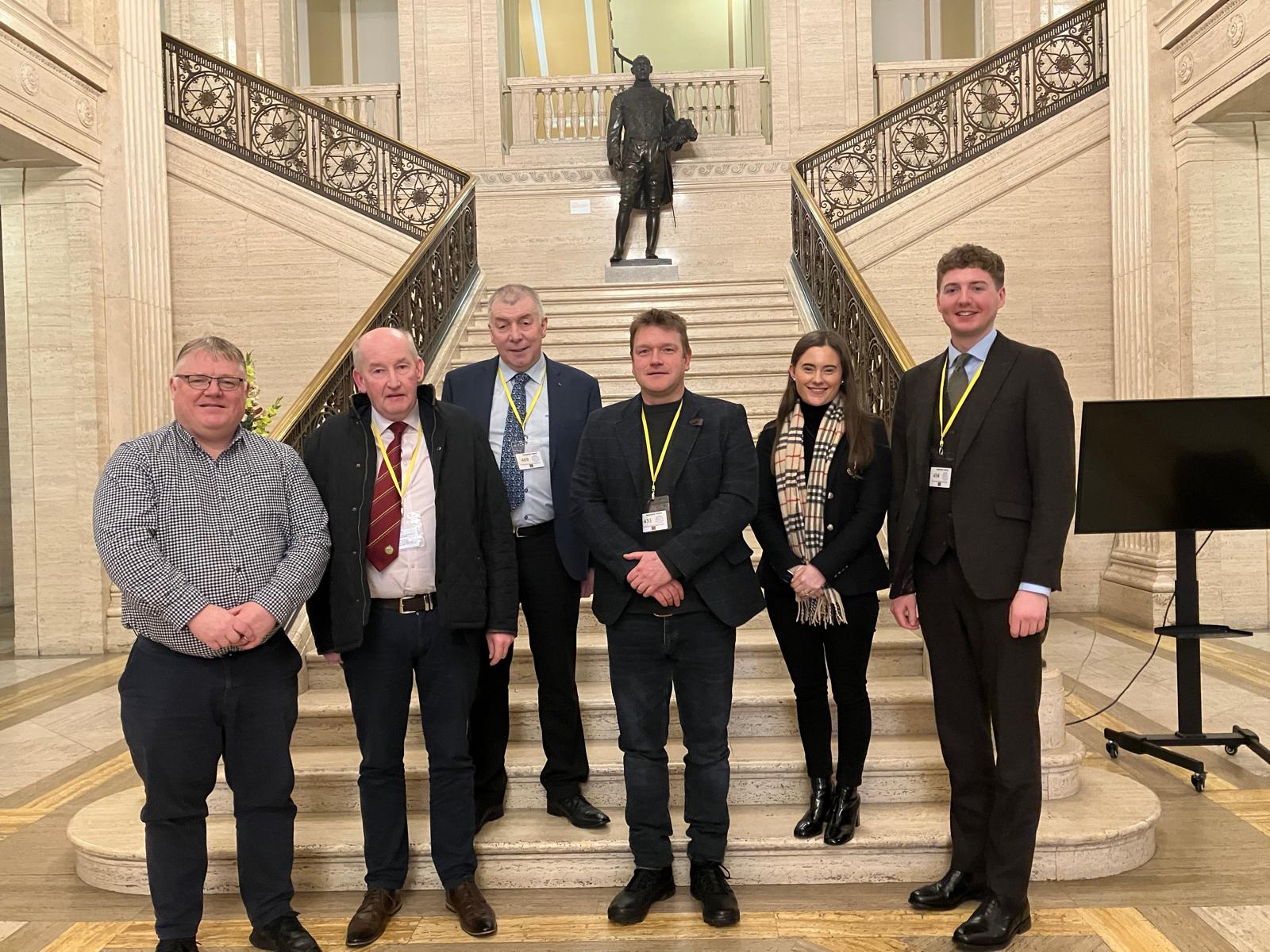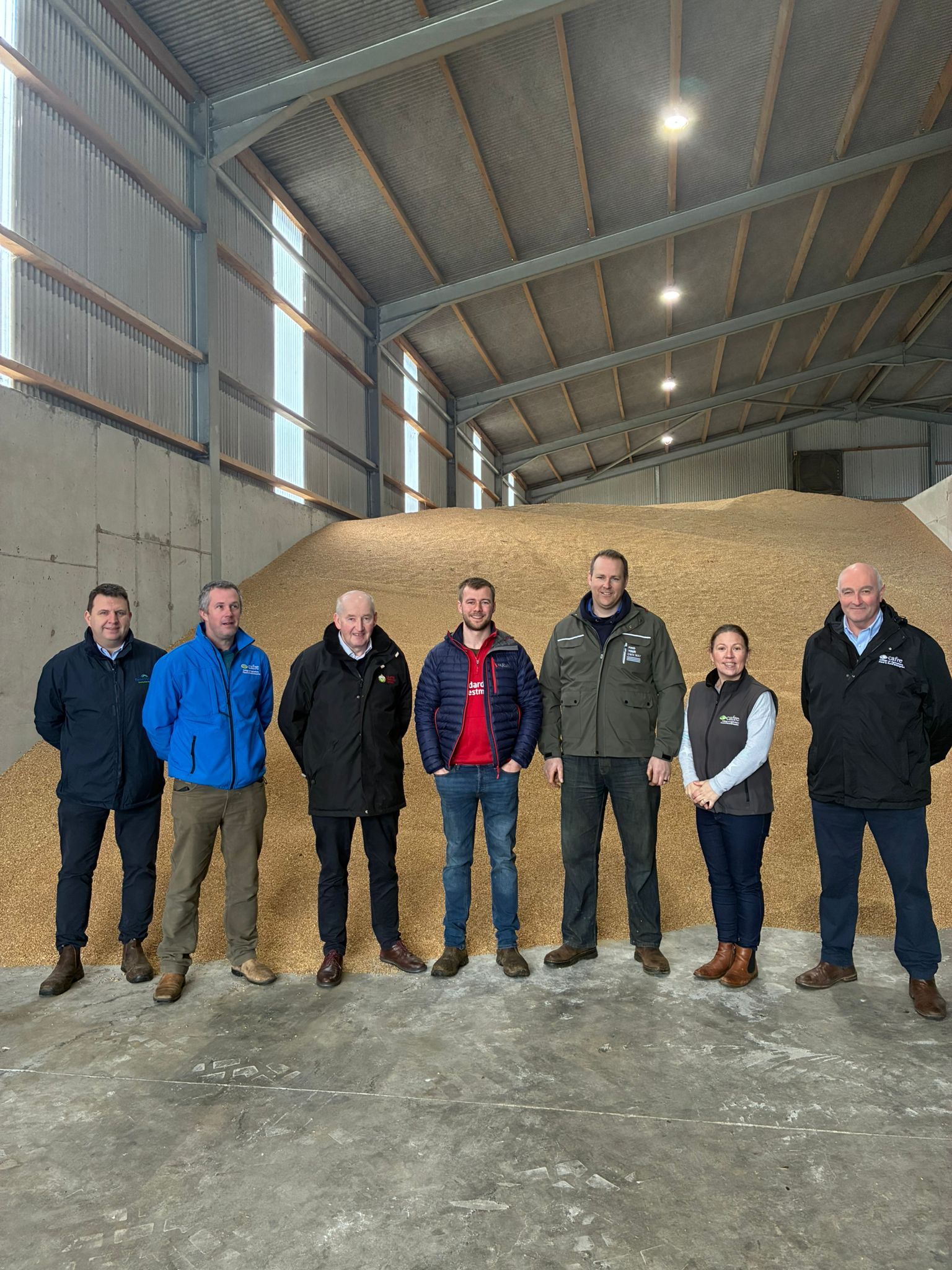
Tyrone countryside. Picture: Cliff Donaldson
Parliamentary update by Alexander Kinnear
Although the Northern Ireland (NI) Executive and Assembly have not been sitting, the Ulster Farmers’ Union (UFU) has continued to lobby politicians across the political spectrum in preparation for any return of devolved government. Whilst the aftermath of Brexit, the NI Protocol (now Windsor Framework) has taken up a substantial amount of lobbying space, agriculture issues have been building up within the political vacuum.
TB
12 month rolling figures show 18,459 animals have been slaughtered due to TB compared to 14,633 in the 12 months previous. The TB programme now costs in excess of £50 million. The detrimental impact on farm businesses, the environment, farmers and their family’s mental health, the NI budget and the need to maintain the current levels of compensation, has been explained to MLAs for years. The UFU has also explained to politicians that the only option left on the table is wildlife intervention to control this disease.
An opportunity to roll out wildlife intervention exists this October and November (the only time wildlife intervention can take place). However, we are missing the Assembly and Executive who are needed in September/October to pass legislation on the area wildlife intervention will take place.
Climate Change
During the last Assembly mandate, politicians rejected the targets proposed by the Climate Change Committee (CCC) and that UFU supported. The CCC’s latest advisory report on The Climate Change Act NI has stated that in order to achieve what the majority of MLAs voted for will potentially require:
- ‘Livestock numbers would need to reduce by almost half by 2050’
- ‘A ramp up in annual afforestation rates to reach 3100 hectares by 2035’
In our most recent political meetings MLAs were updated on key industry projects which will all contribute to reductions in greenhouse gas emissions including the sustainable ruminant genetics programme, carbon surveys and soils scheme, and the importance of support for local research on climate change mitigation measures.
Whist the UFU are very disappointed at the decisions that the majority of MLAs took over climate change in the previous NI Assembly and who voted for unachievable targets, a fully functioning Assembly and Executive is needed to scrutinise the repercussions of those decisions and to explain how the just transition fund for agriculture keenly promoted by some MLAs will be spent, which currently has no budget allocation.
MLAs must remember from a population of 1.9 million we produce enough food for 10 million, this should at the very least be maintained. The UFU continues to highlight the need for balance between food production and climate action and reiterate our strongest opposition to forced livestock cuts.
Future Support
The post Brexit replacement for the Common Agriculture Policy is a positive piece of work, co-designed between industry, NGO’s and DAERA. Whilst some aspects of this policy can go ahead without a DAERA Minister being in place, many aspects cannot, along with the fact that the sheep sector remains outside of any future payments. The UFU do not want to see progress on this tailored NI future support policy being lost.
The current level of funding (£300 million) is only guaranteed until the end of the current UK Parliament. In the build up to the next UK general election, farmers will be relying on UFU alongside a DAERA Minister and MLAs to lobby UK political parties to guarantee future funding past 2024.
Conclusion
In summary, the challenges that face agriculture in NI are growing significantly. It is important that devolved government returns on a stable footing and on a basis that the political parties feel able to do that.







